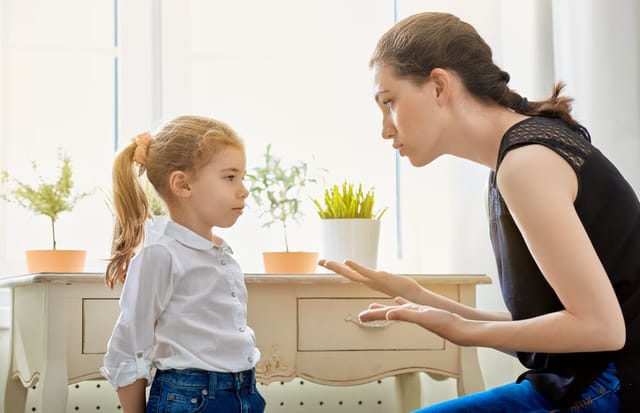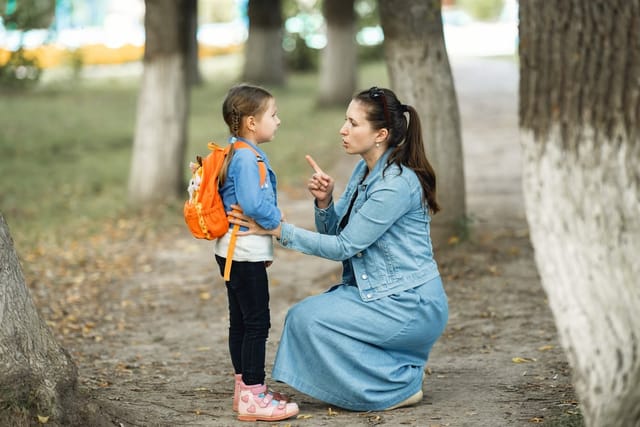Love is the most important thing you can give your children, but is it enough to ensure they grow up to become happy, healthy, well-adjusted adults? Probably not. While you want to show your kids lots of affection and support, there are many other essential things that you should be giving them as acts of love, like your undivided attention and empathy. Here are 15 to add to your parenting backpack because kids need them more than love alone.
1. Attention

Children need to feel seen and validated by their parents, PsychCentral notes. Little acts of kindness and attention, such as giving them a kiss when walking past them or taking an interest in their new toy, go a long way to making them feel cared for and loved. The same goes for discussing feelings with them. While you may not understand their emotions, you should always make sure they know they’re entitled to have them and that they are okay.
2. Honesty
While it’s important to be age-appropriate with information given to children, being open and honest with them is crucial to making them feel safe and like a part of the family unit. There’s nothing worse than if they feel like they’re growing up in an environment filled with lies and secrets.
3. Stability
Children need a stable and safe home. This includes having a daily routine and feeling like they don’t have to walk around on eggshells around their parents. With stability, children can better adjust socially. It also lowers their risk of developing anxiety, which can result from an unpredictable or frightening home environment.
4. Active listening
 ©iStock/Geber86
©iStock/Geber86
If children try to express themselves but their parents don’t really listen, it makes them feel hurt and invalidated. Showing kids active listening, such as by rephrasing what they’ve expressed back to them, helps them to become better and more confident communicators.
5. Confidence

While love is important, parents should avoid trying to keep their children in safe bubbles. Instead, encouraging them to learn and grow, such as by making mistakes, is invaluable. Teaching them confidence helps them realize that they shouldn’t fear rejection or be riddled with self-doubt. It also builds confidence as they realize all the things they are capable of.
6. Empathy

Empathy is a huge skill to teach children from an early age. It involves listening to and acknowledging children’s feelings so that they feel understood and supported. Without empathy, children lack self-awareness and can struggle to build emotional connections with others.
7. Consistency
Children need routines to feel safe, so it’s important for parents to be consistent. This isn’t just about setting mealtimes and bedtimes at the same time every day, but also emotional consistency. If parents say one thing and do another, or make promises they don’t fulfill, this is stressful for kids and teaches them that their caregivers can’t be relied upon to keep their word.
8. Quality time
 ©iStock/AleksandarNakic
©iStock/AleksandarNakic
If parents don’t spend enough time with their kids, it sends them the message that they’re not high on their list of priorities. So, even if they tell their kids how much they love them, it won’t feel authentic. Quality time is important to build a strong relationship and high self-esteem.
9. Support

Showing support to your kids includes reassuring them that they’re safe if they’re scared and cheering them on from the sidelines of their football matches. It teaches kids that you’ve always got their back no matter what happens, helping them to learn how to trust others and to know that they’re not alone.
10. Self-expression
Having healthy self-expression is linked to self-love and confidence, studies have shown. Parents should teach their kids to feel comfortable to say what’s on their mind and in their hearts. This will help them to grow into adults who are in tune with their feelings and become empathetic toward others.
11. Open communication

Children need to know that their parents have an open-door policy with them so they can speak about any topic under the sun without feeling ashamed or embarrassed. This creates a healthy relationship while also teaching children how to navigate difficult or confusing conversations without fear of judgment or punishment.
12. Respect

Respect is a two-way street! Although it’s important for kids to respect their parents, parents should do the same in return. Just because they’re older than their kids, it doesn’t mean they can treat them harshly or overstep their boundaries. If they do, their children will grow up to disrespect others and themselves.
13. Patience
When kids reach out to their parents with their concerns and worries, they don’t want to be shut down. If parents lose their patience easily or write off what their kids are experiencing, this can cause their children to feel like they can’t express themselves or they have to bottle up their feelings.
14. Positive role models
You know what they say: children learn more from what their parents do than what they say. That’s why being a positive role model for kids, such as by showing emotional intelligence and displaying respect, makes all the difference.
15. Acceptance

When children are accepted for who they are, not for who they can become, this is empowering. They’ll feel loved because they can be comfortable in their skin, and this will build their self-esteem and self-worth.









